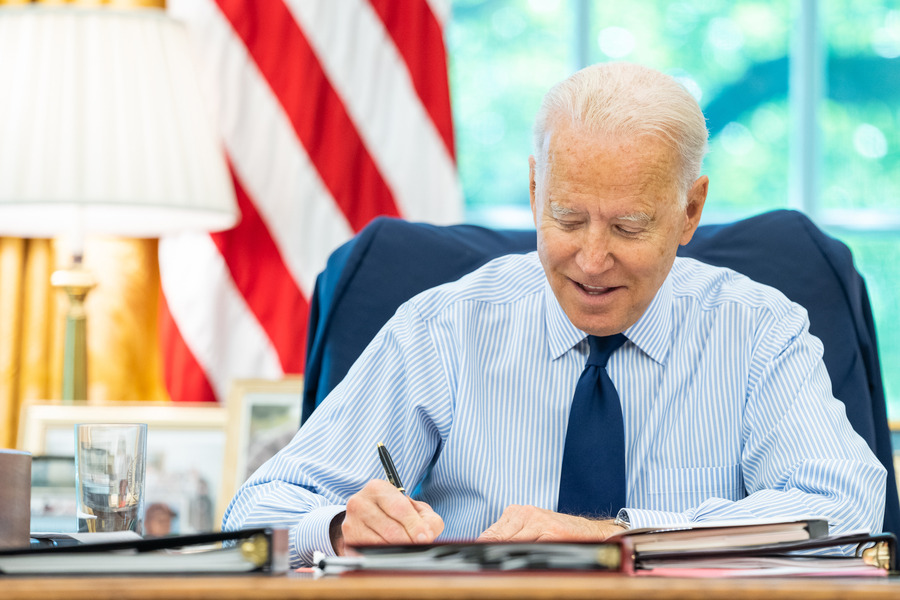Time for the Administration to Change its Gitmo Talk
For the past several months, the Obama administration has been in a weird limbo about Guantanamo. On the one hand, it has barely lifted a finger to effectuate its declared policy of closing the facility--afraid of the politics of the fight it would have on its hands were it to try. It has rope-a-doped spending restriction after spending restriction on bringing detainees to the United States and transferring them abroad. And it has buckled on the much ballyhooed civilian trials it promised in its heady early days.
Published by The Lawfare Institute
in Cooperation With

For the past several months, the Obama administration has been in a weird limbo about Guantanamo. On the one hand, it has barely lifted a finger to effectuate its declared policy of closing the facility--afraid of the politics of the fight it would have on its hands were it to try. It has rope-a-doped spending restriction after spending restriction on bringing detainees to the United States and transferring them abroad. And it has buckled on the much ballyhooed civilian trials it promised in its heady early days. On the other hand, it has continued to refer to closing Guantanamo not merely as something it would like to do in the abstract but as a "national security imperative"--language that, were it true, should presumably imply a willingness to go to the mat. After all, presidents are supposed to defend our national security, right?
Now, we learn from the Politico, that the administration has apparently acquiesced in an agreement to swap this national security imperative for the repeal of "Don't Ask, Don't Tell":
the slimmer version of defense authorization came under threat from Sen. Mark Kirk (R-Ill.), who sought to place a hold on the bill in the Senate over detainee transfer language. Skelton and Rep. Buck McKeon (R-Calif.), the incoming chairman of the House Armed Services Committee, worked together Friday morning to toughen the language, according to McKeon spokesman Josh Holly. That might have alienated liberals like Rep. Barney Frank (D-Mass.), but he spoke on the House floor in support of the bill. Frank told POLITICO agreeing to ban detainee transfers was part of a larger House-Senate compromise that also involved passing "don’t ask don’t tell." “I didn’t like that,” Frank said of the detainee transfer ban. But passing the bill to allow gays to serve openly in the military was more important, he said, adding that the detainee language would have returned in a spending bill. “We would have gotten stuck with that anyway.”I wholeheartedly support repealing Don't Ask, Don't Tell. And while I think that restricting the president's authority to manage detainee affairs is terrible policy, the trade may even be worth it given the likelihood that Frank is right and that the provision would crop up somewhere else. But let's be clear: It is emphatically unacceptable to trade away a "national security imperative" in exchange for a policy change that, while clearly a matter of justice and good for the military in terms of its access to qualified personnel, is far from a security imperative. Calling something a national security imperative and then failing to fight for it erodes your credibility--and it should. Can you imagine the Bush administration publicly and repeatedly declaring something a national security imperative and then standing back as it gets horse-traded like some piece of pork-barrel spending? You would have a veto threat. Or you would have one of those infamous signing statements informing us that the administration interprets the language saying that it may not transfer people to the United States to mean that it should probably exercise appropriate executive discretion in doing so. And, let's face it, you would also have a lot of quiet phones calls to the Hill warning key members that they should not plan on that bridge going up in their districts if this language stays in. You would have, in short, the power of the presidency put behind his administration's words. If closing Gitmo really is a national security imperative, the administration should be fighting tooth and nail to defeat these provisions, not seeing what it can get in exchange for accepting them. More to the point, if closing Gitmo is not a national security imperative, but merely one policy objective among many, it should stop using language about it that should convey a willingness to fight. UPDATE: I thought I should say a word of clarification in light of Adam Serwer's post this morning saying that I had suggested that the administration actively "blessed this deal." I can see how my comments could be read that way, but I actually did not mean to suggest that and, to be clear, I don't know it to be true. I meant something rather narrower, that the absence of a sustained fight against these provisions--that is, merely allowing them to be the subject of this sort of horsetrading without raising one's voice in objection and promising a veto--is inconsistent with calling Gitmo's closure a national security imperative.
Benjamin Wittes is editor in chief of Lawfare and a Senior Fellow in Governance Studies at the Brookings Institution. He is the author of several books.





